
BASC at Crufts
BASC has a long history at Crufts and runs the renowned Gamekeepers’ Ring at the show which celebrates the best working gundogs in the country.
Get information on the legal shooting season for mammals and birds in the UK.
Apply for funding for your project or make a donation today
Comprehensive information and advice from our specialist firearms team.
Everything you need to know about shotgun, rifle and airgun ammunition.
Find our up-to-date information, advice and links to government resources.
Everything you need to know on firearms law and licensing.
All the latest news and advice on general licences and how they affect you.
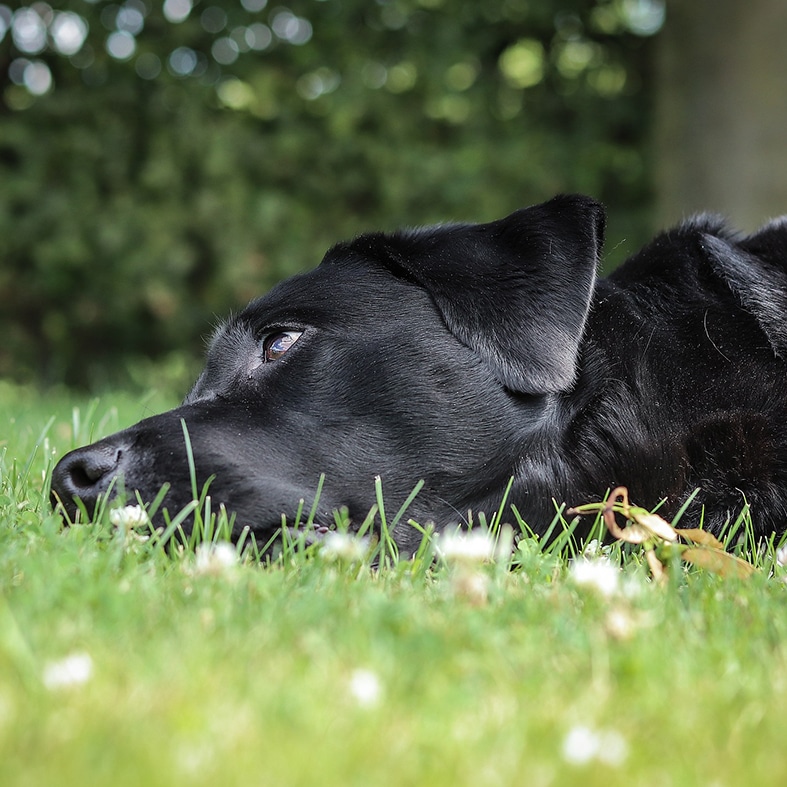

Home » Gundogs » Gundog advice » Dealing with Heat Stroke
Heat stroke can be fatal, and working dogs are at risk if not managed appropriately in warm weather. Even a dog at rest can become too hot in certain conditions so, if you’re working with a dog on a warm day, be vigilant about their management to ensure their safety and comfort.
Vet Rebecca Bailey has the following guidance on spotting heat stroke in dogs.
If your dog is exhibiting advanced signs of heat stroke, seek veterinary care immediately.
It is important to act quickly if you suspect your dog has got too hot and could be suffering from heat stroke.
If symptoms persist or worsen, seek veterinary assistance.
To avoid heat stroke, it is important to remember how dogs regulate their temperature and what could compromise their ability to regulate their temperature.
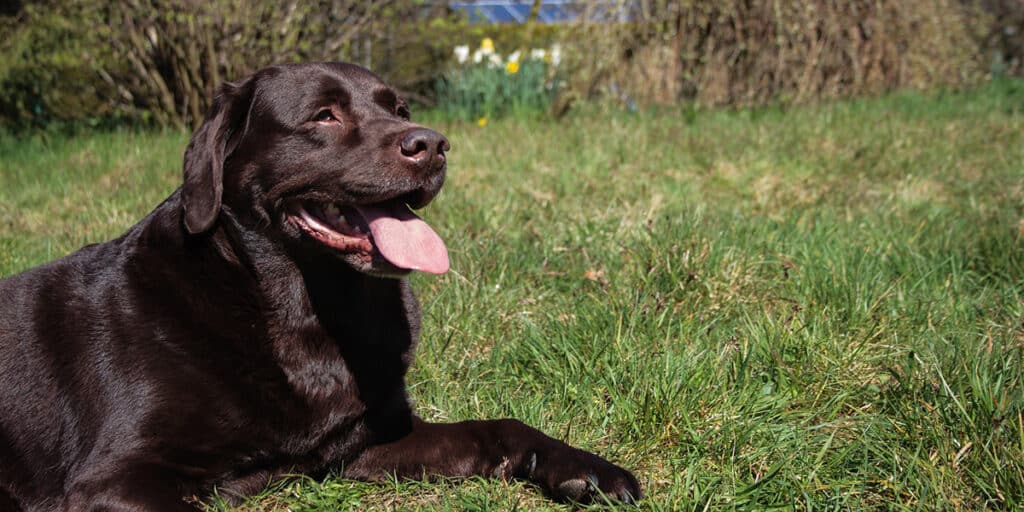
Where we can seek shade, shed layers and sweat to regulate our body temperature, dogs rely on other methods:
As an overheated dog pants, you’ll notice that the tongue becomes very red and almost slightly swollen. This is caused by the superficial blood vessels on the tongue dilating and allowing hot blood to run close to the surface. This, in turn, warms the saliva on the tongue which as it evaporates takes heat with it.
The efficiency by which a dog can lose heat is determined very much by its environment and what level of activity the dog is doing at the time.
Access to water and shade is vital in the management of our dogs. Remember panting results in water loss as well as heat loss so you’ll need to top their water bowl up more frequently.
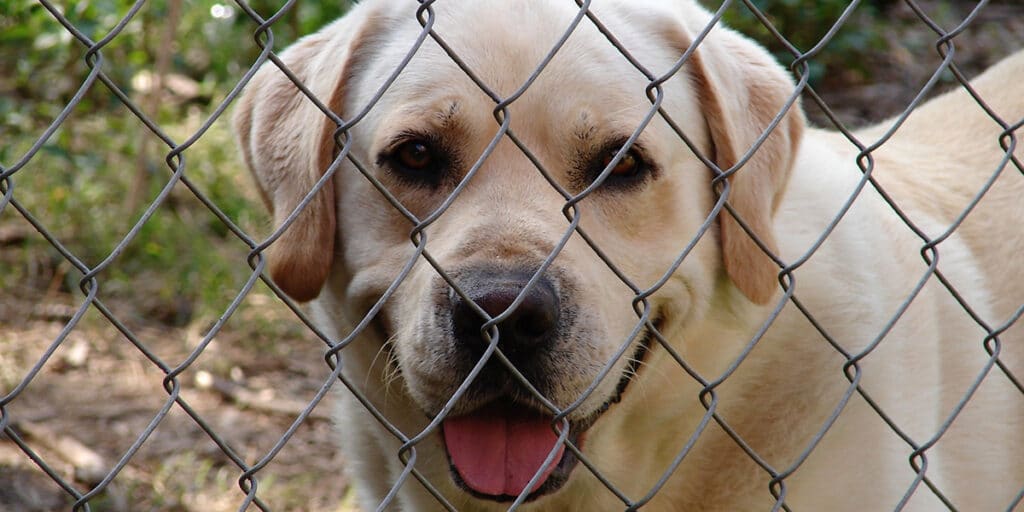
This can often be a great place for a dog to be in hot weather providing a few of the following apply:
Wood and rubber mats are great for winter insulation, but stone will be much cooler for them to lie on in warm weather.
Although many dogs do enjoy sunbathing, after a while they will generally stagger off to a cooler place. Some kennels have an inner sleeping area in a converted barn or cattle shed. This gives good shelter from direct sunlight over a larger area so keeping the surrounding air cooler too.
Effective evaporation can only take place if there is a current of air to help move the heat away. An airy outside run with shade or a large ventilated indoor area is good.
Avoid a small wooden kennel with no areas of shade in the run as it will act like an oven.
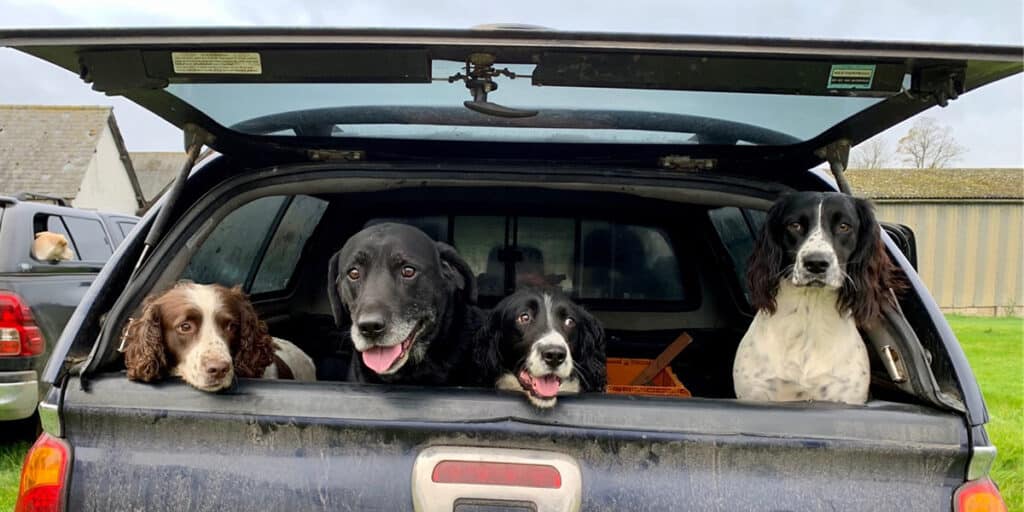
Cars can quickly become a dangerous environment to leave a dog in warm weather if appropriate measures have not been taken. Never leave a dog in a hot car.
Window guards are available which can safely let you leave a good air gap alternatively there are cages/transit boxes which fit snugly across the back of the car below the boot lid, these will allow you to safely leave the boot open and provide lots of airflow.
Remember to plan ahead, as the sun moves so will the shade so aim to face the car into the sun so the boot is shaded by the body of the car as much as possible. Ideally, park well under the trees.
Consider using reflective shields/blinds. Some trucks now have blacked-out windows which can be very effective.
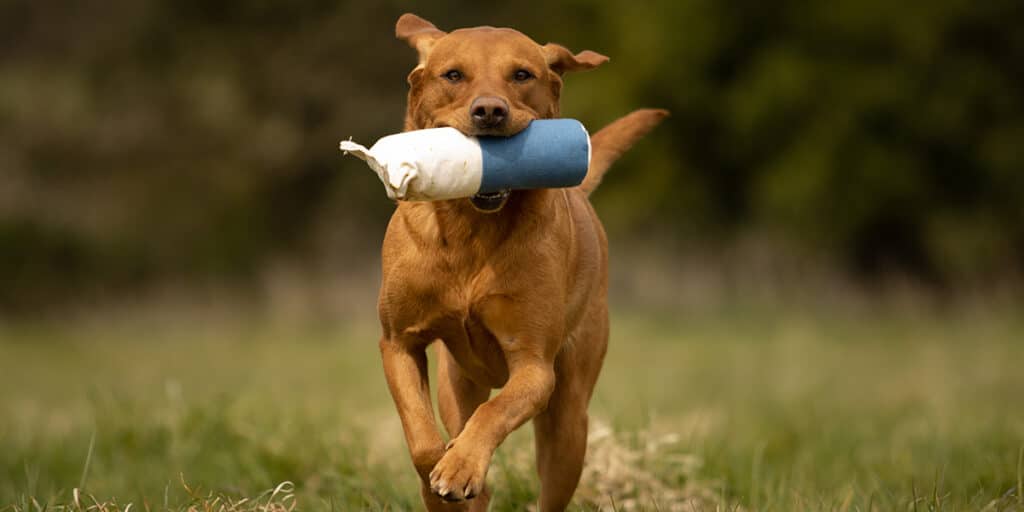
We cannot govern the time of day that the tests can take place, but we can choose when to train. In hotter months, train early in the morning or later in the evening.
Be particularly careful about walking on tarmac in hot weather. If you can’t place the back of your hand on it for more than a few seconds, it is too hot for your dog to walk on.
If the car cannot be parked in the shade then try to do as much waiting in the shade between runs as possible.
Help your dog relax in the shade between runs and don’t take it round with you as you socialise and soak up the summer sun. You want to try to avoid the dog getting over-excited at this point and allow it to recover from its exercise.
Huge intakes of water will lie heavily in the stomach and make it less inclined to move later when it’s time to run.
If you are running your dog at a test and it is getting hot and bothered, consider retiring it early in the day – there is no shame in this. You will have a dog to run again another day rather than a huge vet’s bill or no dog.
The British weather is predictably unpredictable so it’s safer to assume the day is going to be hot even if it starts cloudy. Have everything you need with you to help manage your dog in warm conditions.
In partnership with

BASC has a long history at Crufts and runs the renowned Gamekeepers’ Ring at the show which celebrates the best working gundogs in the country.
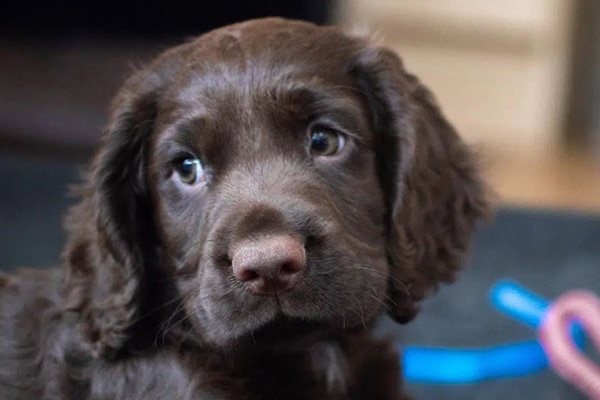
The procedure must be undertaken by a veterinary surgeon on pups aged five days or less.
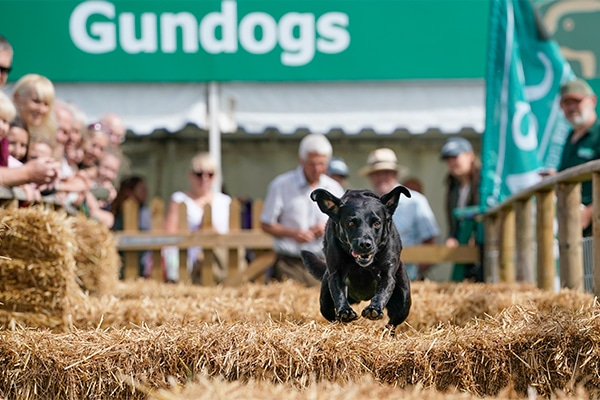
You can find BASC scurry events at shows and game fairs all over the country and we also run regular gundog training and husbandry event.
Sign up to our weekly newsletter and get all the latest updates straight to your inbox.
© 2025 British Association for Shooting and Conservation. Registered Office: Marford Mill, Rossett, Wrexham, LL12 0HL – Registered Society No: 28488R. BASC is a trading name of the British Association for Shooting and Conservation Limited which is authorised and regulated by the Financial Conduct Authority (FCA) under firm reference number 311937.
BASC Direct Ltd is an Introducer Appointed Representative of Agria Pet Insurance Ltd who administer the insurance and is authorised and regulated by the Financial Conduct Authority, Financial Services Register Number 496160. Agria Pet Insurance is registered and incorporated in England and Wales with registered number 04258783. Registered office: First Floor, Blue Leanie, Walton Street, Aylesbury, Buckinghamshire, HP21 7QW. Agria insurance policies are underwritten by Agria Försäkring.
If you have any questions or complaints about your BASC membership insurance cover, please email us. More information about resolving complaints can be found on the FCA website or on the EU ODR platform.